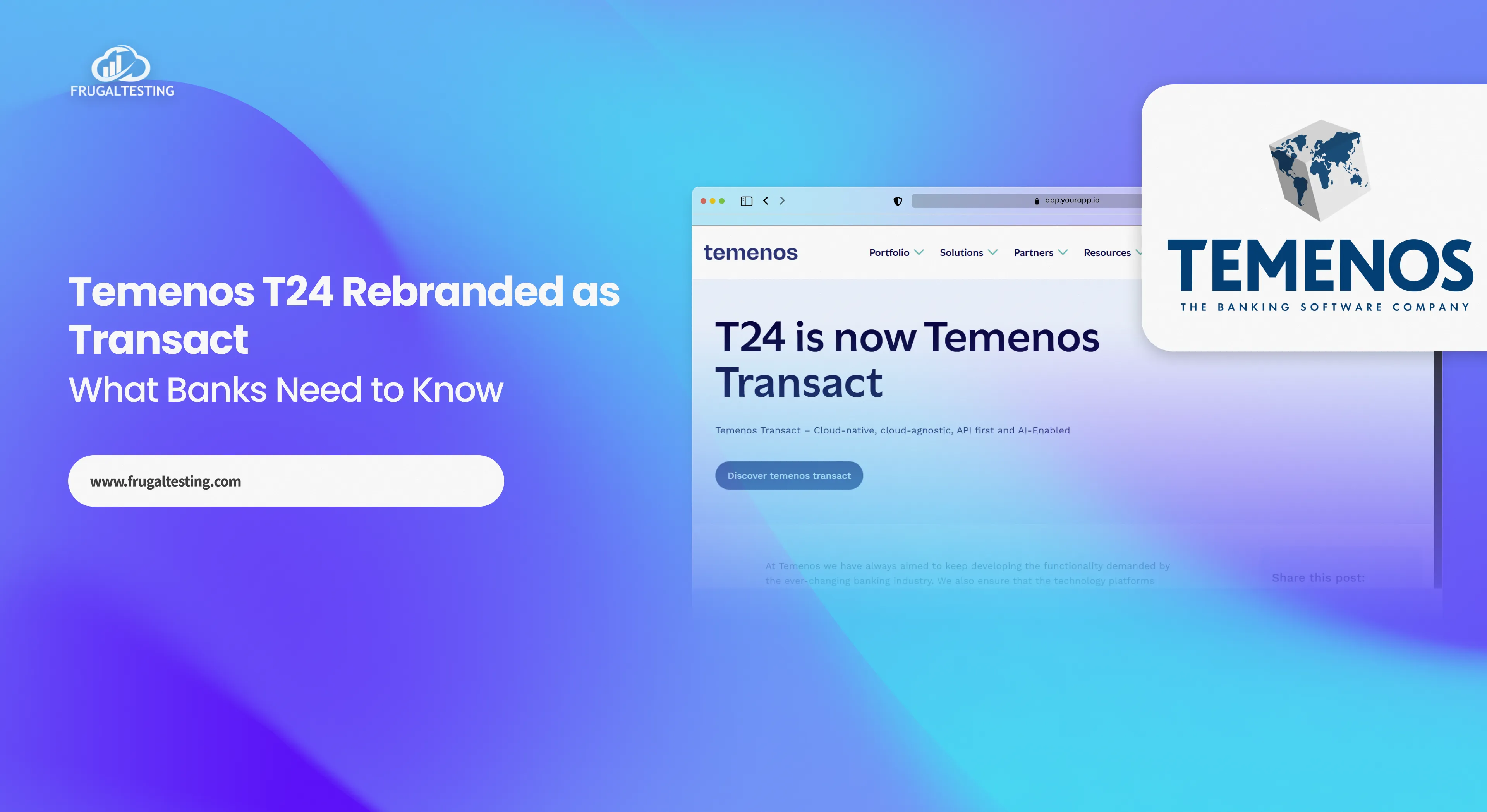In 2024, businesses must carefully evaluate their outsourcing strategy to align with evolving market trends and dynamics. The choice between domestic and international outsourcing providers depends on each organization's specific needs and objectives. While some companies prioritize proximity and local expertise, others seek to leverage global resources and economies of scale, balancing their decisions with the capabilities of their internal teams.
📌 Understanding Outsourcing: Definitions and key differences between domestic and international outsourcing providers.
📌 Benefits: Proximity and expertise in domestic outsourcing providers. Access to the talent pool and cost savings in international outsourcing.
📌 Techniques: Onsite staffing, project-based engagements, and nearshoring in domestic. Offshoring, nearshoring, and global delivery models in international.
📌 Challenges and Mitigation: Higher overhead costs and limited talent in domestic. Communication barriers and regulatory complexities in international. Strategies for risk mitigation, including vendor selection and clear contracts.
📌 Legal Considerations: Contractual agreements, intellectual property protection, and regulatory compliance.
📌 Future Trends: Impact of technology, geopolitics, and emerging trends on outsourcing industry models.
Outsourcing is a widely adopted business strategy involving the delegation of specific tasks or operations to external parties. This approach optimizes efficiency and allows companies to focus on the core strengths of business function objectives, such as their Non-Core Functions. It encompasses various aspects.
Definition of Outsourcing
Outsourcing involves businesses delegating Non-Core Tasks and Non-Core Functions to specialized external service providers to focus on Core Business Activities and Core Competencies. It improves efficiency, reduces costs, and provides access to specialized skills, enabling companies to achieve strategic goals effectively.

Types of Outsourcing Services

IT outsourcing services play a significant role in this strategy, encompassing tasks such as Software Testing, App Development, and web design outsourcing.
Offshore Outsourcing
💼Expanding outsourcing to international markets offers benefits such as cost savings and access to a global talent pool. Countries like India and USA (San Francisco & Silicon Valley) are renowned for their software development outsourcing companies.🌍
Pros and Cons
While outsourcing offers scalability and access to specialized skills, businesses must consider factors like careful planning of data and information security. Understanding the benefits of outsourcing and drawbacks is essential, whether it's a local SEO outsourced team or the need for virtual assistants.

Evaluating Solutions
🔍Assessing outsourcing solutions involves weighing various factors to make informed decisions. This includes exploring options like DevOps outsourcing for development teams and technical writing outsourcing to meet evolving market demands and skill sets.💡
Global Trends
📈As outsourcing trends evolve, businesses must adapt to remain competitive. Understanding the difference between outsourcing and offshoring is crucial in navigating this landscape effectively, from direct control over complex projects to leveraging advanced technology for business growth and an annual growth rate.🔄
What is Domestic Outsourcing?
Domestic outsourcing involves contracting services or tasks to third-party service providers within the same country. This approach allows businesses to capitalize on local expertise, infrastructure, advancements in technologies, strategic decisions, economic conditions, cultural norms, house team software development models, and regulatory familiarity.🏢💼
Benefits of Domestic Outsourcing:
- Proximity ⏩
- Cultural Alignment 🤝
- Regulatory Compliance 📝
What is Global Outsourcing?
Global outsourcing 🌎, on the other hand, entails engaging with service providers located in foreign countries. This strategy enables access to a diverse talent pool, cost savings, nearshore partners, reliable partners, nearshore outsourcing, outsourcing software development, cloud-based outsourcing, outsourcing firms, and potential operational cost efficiencies💰.
Benefits of Global Outsourcing:
- Access to Talent 💡
- Cost Savings 💸
- Operational Flexibility 🔄
- Software Testing 🖥️some text
- Functional Testing
- Performance Testing
- API Testing
- Regression Testing
Major Benefits of Domestic and Global Outsourcing

Domestic Outsourcing Benefits
- Proximity and Communication: Proximity enables easier 📞 communication and collation between stakeholders.💬
- Cultural Alignment: Shared 🤝 cultural values integrate well with workflows and practices 🌐, satisfying both employees and the business owner.
- Regulatory Familiarity: Compliance with local 📝 regulations is more straightforward, reducing legal risks and uncertainties 🔍.
Global Outsourcing Benefits
- Access to Talent: Global outsourcing provides access to a diverse talent 💡 pool with specialized skills and expertise.
- Cost Savings: Lower labour costs in international markets 💰 result in significant savings for businesses.
- Operational Efficiency: Time differences 🕒 allow for around-the-clock operations and faster turnaround time differences, enhancing efficiency.
How do International and Domestic Outsourcing Help Businesses Gain More Market Share?
Domestic outsourcing means hiring help from within your own country, while global outsourcing involves hiring from other countries. Domestic outsourcing offers easy communication styles📞 and regulatory familiarity, while global outsourcing provides access to a larger talent pool 💡 and cost savings.
Benefits of Outsourcing:
🟢Access to Specialized Talent: Outsourcing offers access to a diverse pool 💼 of specialized talent from around the world.
🟢Scaling Operations: It allows businesses to scale their operations rapidly 🔄 without significant investments in infrastructure or personnel.
🟢Improving Cybersecurity: Outsourcing cybersecurity services enhances data 🛡️protection and minimizes the risk of breaches.
🟢Filling Skills Gaps: Outsourcing helps address talent shortages by accessing a broader talent pool 💼, enabling businesses to build high-performing teams.
Advantages and Disadvantages of International and Domestic Outsourcing

Advantages of International Outsourcing
🟢Cost Savings: Lower labour costs in international markets result in significant cost savings 💰 for businesses.
🟢Access to Talent: Global outsourcing provides access to a diverse talent pool with specialized skills and expertise.
🟢Operational Efficiency: Time zone differences allow for around-the-clock operations 🕒 and faster turnaround times, enhancing operational cost reduction efficiency.
Disadvantages of International Outsourcing
🔴Communication Challenges: Language barriers, time zone differences, and varying language proficiencies 🗣️ can hinder effective communication and collation.
🔴Cultural Differences: Cultural nuances may lead to misunderstandings or conflicts 🌍 in workflows and business practices.
🔴Regulatory Compliance: Compliance with local regulations and data protection laws can be challenging 📝 in foreign jurisdictions.
Advantages of Domestic Outsourcing
🟢Proximity and Communication: Proximity enables easier communication 📞 and collation between stakeholders.
🟢Cultural Alignment: Shared cultural values facilitate smoother integration 🤝 with existing workflows and business practices.
🟢Regulatory Familiarity: Compliance with local regulations is more straightforward, reducing legal risks 🔍 and uncertainties.
Disadvantages of Domestic Outsourcing
🔴Higher Costs: costs in domestic markets are generally higher 💰 compared to international markets, resulting in increased operational expenses.
🔴Limited Access to Talent: The talent pool may be limited in domestic markets, especially for niche skills 💼 or specialized expertise.
🔴Saturation in the Talent Pool: High demand for skilled developers may lead to talent shortages📉 and increased competition among businesses.
How is Domestic Outsourcing Different from Global Outsourcing?
Domestic Outsourcing

Domestic outsourcing involves hiring a third-party organization within the same country to handle business operations. Companies typically outsource tasks such as IT processes, manufacturing, and customer support to local agencies.
Global Outsourcing

Global outsourcing, on the other hand, means hiring other organizations to oversee company operations. It frequently involves outsourcing with foreign service providers to handle manufacturing, customer service, IT operations, and other tasks.
Key Differences
Be Ready for International and Domestic Outsourcing with Multiplier
Get ready for domestic and international outsourcing projects by utilizing Multiplier's features. Multiplier provides a seamless way to optimize your company processes, regardless of whether you're thinking about outsourcing to the developing world, India, or any other location.
Market familiarity📊

It is essential to comprehend the market dynamics before launching an outsourcing project. This entails evaluating elements including the skill pool that is accessible, the employment market, and related expenses. By giving you insightful information about your target market, Multiplier makes this process easier and enables you to make wise decisions.🎯
Simple Outsourcing🔧

Working together with Multiplier guarantees a seamless and trouble-free outsourcing process. They can manage several facets of your expansion process thanks to their experience as an Employer of Record (EOR) or Professional Employer Organization (PEO). Maintaining staff onboarding, advantages, paycheck, assurance, and multi-currency payments, in addition to making sure local regulations are followed.💼🌐
Let's Discuss a Few Risks of Domestic and International Outsourcing

Companies can benefit greatly from outsourcing, but there are risks involved as well. Let's examine some typical problems and practical ways to mitigate these risks effectively:
📍Communication Breakdowns: Effective communication is key to successful outsourcing. To avoid misunderstandings, businesses should set up clear communication channels 📡, and define everyone's roles upfront.
👉🏻Solution: Working with remote teams can present unique challenges. To ensure smooth collation, choose remote teams carefully, provide clear instructions and guidance ✅, and maintain regular communication to address any issues promptly.
📍Protecting Intellectual Property: Sharing sensitive information with third-party providers can raise concerns about intellectual property theft. To safeguard against this risk, choose partners with a strong track record of protecting intellectual property.
👉🏻Solution: To ensure data security, vet potential partners for strong security protocols 🔒, establish clear data protection agreements, and consider investing in encryption technology.
📍Maintaining Quality Standards: Quality issues can arise if outsourcing isn't managed properly. To maintain quality standards, carefully select outsourcing partners, be transparent about expectations, and monitor their progress 📈.
👉🏻Solution: Make sure that the outsourcing business fulfills your project criteria by checking in with them regularly. Have a contingency plan if the outsourced company cannot meet your needs, which could include hiring additional staff or finding another company to take over the work.
📍Navigating Hidden Costs: Unexpected expenses can throw a wrench into outsourcing plans. To avoid financial surprises, conduct thorough cost analysis💰, and stay in regular communication with suppliers
👉🏻Solution: Analyze the costs in detail and take prudent care of them to minimize dangers. You can make sure that outsourcing continues to be beneficial for your company by carefully weighing your options and keeping a close line of communication with your companies.
📍Ensuring Data Security: Sharing sensitive data with third-party providers raises concerns about data security. To protect against data breaches, vet potential partners for strong security protocols 🔐, and establish clear data protection agreements.
👉🏻Solution: By taking precautions such as thoroughly vetting potential partners and implementing robust contractual agreements, businesses can minimize the risks associated with outsourcing while reaping its benefits.
Common Domestic and International Outsourcing Techniques Used by Companies
Domestic Outsourcing Techniques

International Outsourcing Techniques

Some Important Factors Should a Business Consider When Deciding Between Domestic and International Outsourcing?

👉🏻Cost Considerations: Evaluate the total cost of ownership💰, including labour, infrastructure, and the costs associated with repetitive tasks, to determine the most cost-effective outsourcing option.
👉🏻Quality and Expertise: Assess the skills and capabilities of potential service providers to ensure alignment with project requirements and quality standards ✅.
👉🏻Risk Management: Identify potential risks and develop mitigation strategies to safeguard against unforeseen challenges, such as data breaches or service disruptions🛡️.
👉🏻Regulatory Compliance: Understand legal and regulatory requirements in both domestic and international jurisdictions to ensure compliance and minimize legal risks📝.
👉🏻Cultural Compatibility: Consider cultural differences and communication preferences to foster effective collation and minimize misunderstandings or conflicts in workflows🤝.
What are the Legal Considerations for International Outsourcing and Domestic Outsourcing?

Legal considerations for outsourcing include:
- Contractual Agreements: Drafting comprehensive contracts outlining terms, responsibilities, and deliverables to protect the interests of all parties involved 📝 .
- Intellectual Property Rights: Ensuring adequate protection of intellectual property through confidentiality agreements and non-disclosure clauses🛡️.
- Regulatory Compliance: Adhering to relevant laws and regulations, such as data protection laws and industry-specific regulations, to mitigate legal risks and ensure compliance📑.
- Dispute Resolution Mechanisms: Establishing mechanisms for resolving disputes and conflicts through arbitration, mediation, or litigation, to minimize the potential for legal disputes and disruptions to business process outsourcing operations ⚖️.
What are the Risks Associated with Outsourcing, Both Domestically and Internationally?

Outsourcing risks include:
- Data Security Breaches: Inadequate data protection measures may expose sensitive information to unauthorized access or cyberattacks, resulting in financial losses and damage to reputation🛡️.
- Quality Control Issues: Lack of oversight and quality assurance processes may lead to subpar deliverables, customer dissatisfaction, and reputational damage❌.
- Intellectual Property Theft: Insufficient safeguards and contractual agreements may expose businesses to the risk of intellectual property theft or infringement, compromising their competitive advantage and market position🚫.
- Regulatory Compliance Challenges: Differences in regulatory requirements across jurisdictions may lead to non-compliance and legal repercussions, including fines, penalties, and reputational damage📑.
- Dependency on External Providers: Reliance on external service providers may pose operational risks and vulnerabilities, especially in the event of service disruptions, contract disputes, or changes in market conditions🔄.
Conclusion
In today's business world, choosing between domestic and international outsourcing is crucial. Domestic outsourcing offers proximity and familiarity but can be costly and limit talent. Global outsourcing provides access to a diverse talent pool and cost savings but comes with communication and regulatory challenges.
To decide wisely, businesses must consider factors like cost, quality, risk, compliance, and culture. Embracing technological advancements will be key to future success in outsourcing, offering new opportunities for efficiency and innovation.
People also ask
👉🏻What is the Difference between Outsourcing and Offshoring?
Outsourcing involves hiring external service providers for specific tasks, while offshoring relocates these activities overseas. Offshoring often focuses on global transfers for cost reduction or accessing skills.
👉🏻How's International Outsourcing Affecting the Global Economy?
International outsourcing redistributes capital, and resources globally, fostering economic growth in emerging markets and cost efficiencies for businesses.
👉🏻What role does technology play in facilitating Domestic and International Outsourcing?
Technology facilitates outsourcing by enabling seamless communication, collation, and project management led by project managers across geographically dispersed teams. Tools like video conferencing and cloud platforms help overcome distance and time difference barriers.
👉🏻What is the future of Outsourcing?
The future of outsourcing, including onshore outsourcing, will be influenced by technological advancements, geopolitical shifts, and market trends. Automation, AI, and the gig economy are expected to reshape traditional outsourcing models, offering new opportunities for innovation and efficiency.
👉🏻What are the Best Reasons for International and Domestic Outsourcing?
The best reasons for outsourcing vary depending on business needs. Common motivations include:
- Cost Savings: Outsourcing offers significant cost savings through arbitrage and operational efficiencies.
- Access to Talent: Outsourcing provides access to specialized skills or expertise not available to the in-house team, enhancing project execution.
- Scalability: Outsourcing enables quick scaling of operations in response to market changes or project demands.





%201.webp)

